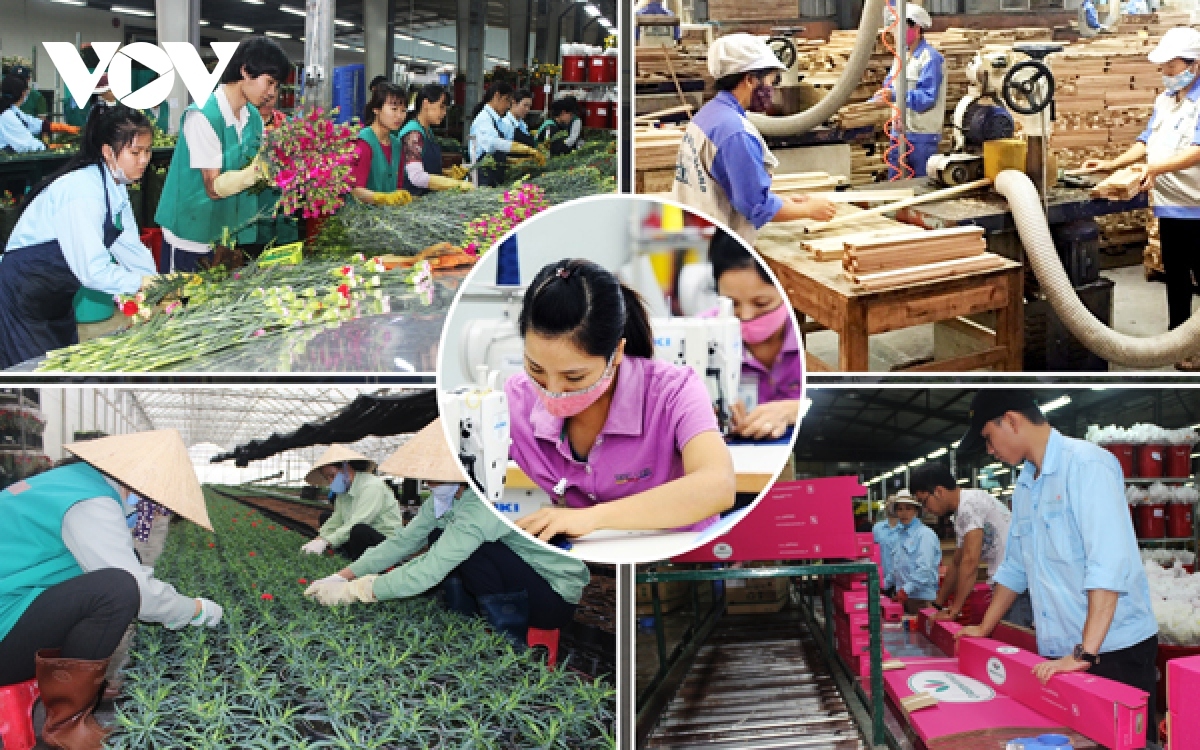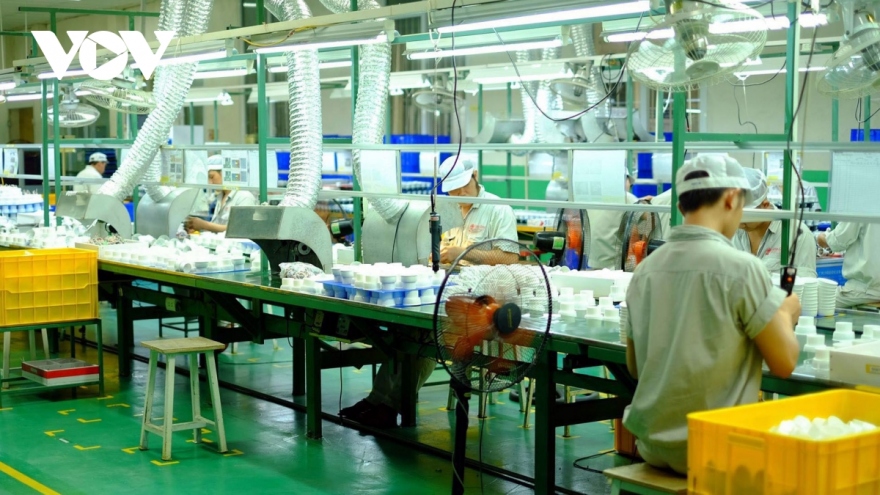Experts say national economy needs to be resilient to shocks
VOV.VN - Vietnam should adapt and stay resilient to economic shocks, as opposed to neglecting them, according to economic experts speaking during a recent workshop on forecasts for the national economy in the second half of the year.

The Central Institute for Economic Management (CIEM) recently revised two scenarios for the local economy by the end of the year following the latest resurgence of the SARS-CoV-2 virus in late April.
These changes mean that the national economy is forecast to grow by 5.9% and 6.2%, in the event that the recent COVID-19 outbreak is kept in check in October and August, respectively.
To maintain economic growth, CIEM researchers emphasised the parallelism between macroeconomic policy and micro-economic reform in economic recovery towards achieving a green and sustainable recovery.
Experts proposed that Vietnam devise strategies for enhancing the internal capacity and the degree of autonomy of the economy in the new context, coupled with the effective implementation of the international economic integration process, while improving the legal framework for innovation, with a specific focus on the digital economy.
Tran Thi Hong Minh, director of the CIEM, noted that the resurgence of the virus has given rise to a range of uncertainties relating to the possibility of economic recovery globally. Indeed, the rapid spread of new COVID-19 variants has prompted many countries to reinstate restrictive measures, whilst delays in vaccine delivery, debt risks, and inflation pressure continue to pose severe challenges.
Economist Nguyen Anh Duong, head of the CIEM research team, pointed to the fact that the business screening process will become stronger and fiercer, forcing many firms to leave the market. However, the number of enterprises which have raised capital and resumed operations is increasing, and foreign investors continue to place their trust in the Vietnamese market.
Moving into the new context, Duong underlined the necessity of enhancing the independence and autonomy of the economy, reducing dependence on exports from the foreign direct investment (FDI) sector, and improving the resilience of the local economy.
“It is necessary to withstand economic shocks, not avoid them,” Duong stressed.
The CIEM expert went on to emphasise the need to develop the private economy in association with the FDI sector. He suggested that businesses improve their capacity to effectively implement free trade agreements, with their focus not only be on the rules of origin, but also on new issues, such as e-commerce, the digital economy, innovation, science and technology development, and productivity.
One of the key solutions, according to Duong, is to ensure parallelism between macroeconomic policy and micro-reforms.
“Reforms must be implemented immediately and continuously, instead of waiting until the end of the pandemic,” said the expert, “The macroeconomic policy should be loosened flexibly to support businesses and keep room to help the economy bounce back later.”

